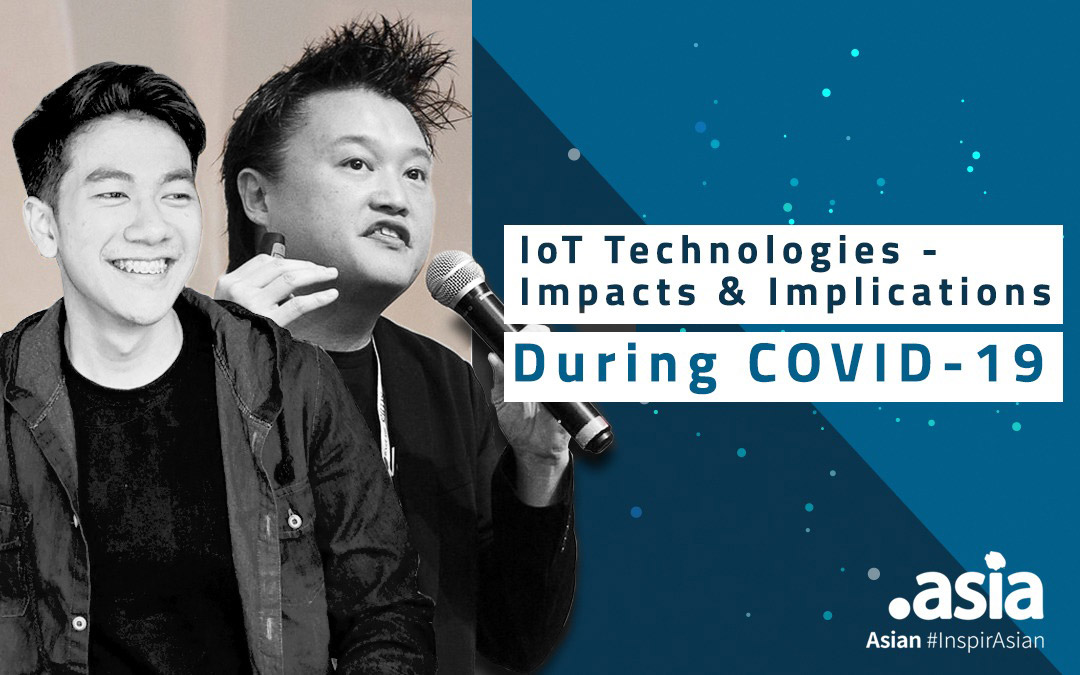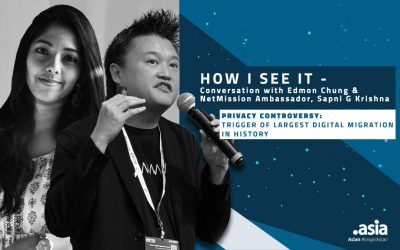Many of us have heard of the Internet of Things (IoT), they refer to everyday objects, such as our phones or doorbells, that become “smart” as a result of their Internet connection. IoT devices communicate with each other without human intervention, often collecting and sharing data, our data.
In 2019, the Asia Pacific region was the biggest spender on IoT technology according to IDC, responsible for over 35% of worldwide expenditure. As the development of IoT technology and the ubiquitous Internet continue to evolve, details of our lives such as our shopping preferences and whereabouts are recorded, shared, and have a life of its own online.
Recently, amid the COVID-19 pandemic, IoT technologies have been deployed by governments to track people, in the name of keeping our communities safe. While contact tracing may be helpful during a pandemic, IoT solutions such as these have huge privacy and confidentiality implications. What are we giving up in the name of safety and regulations?
In this post, DotAsia Organisation CEO, Edmon Chung, sits down with NetMission ambassador, Farhan Shahmi — a youth advocate for digital literacy and cultural commentary as well as a leader of the #AMBILTahu initiative that promotes media literacy to the Malaysian public, to explore the impacts and implications of IoT technology on privacy and security.

Farhan:
IoT plays an important role in maintaining online social cohesion during COVID-19 when we are practicing social distancing. How do you see IoT utilised during the pandemic in different nations? Furthermore, people might see these measures the governments are using with IoT as a good thing during COVID-19, as it helps tackle the crisis more effectively and efficiently. What’s your opinion?

Edmon:
When I returned to Hong Kong, I was given a tag, a little device with a chip installed, strapped around my wrist to monitor my 14-day quarantine period. From what I could see, it had no interaction with the network or other devices. The only interaction discernable was a periodic scan through my phone of the QR code printed on the widget, which didn’t appear to be related to the chip. It seemed to me that while the government is trying to leverage IoT technology, the administrative infrastructure is not yet built to utilise the technical features. In this case, the development of technology is ahead of the governance and administrative processes, and as such, technology is not being utilised to its full potential.
Mainland China on the other hand appears to be tracking its citizens relatively more heavily through mobile applications. However, I am not sure we have seen a direct relation or effective contribution between a high level of tracking and curbing COVID infection rates compared with Hong Kong or Canada. For example, based on information at WHO, it appears to have taken Mainland Chinese authorities three months, from December to February, to figure out if the virus can pass from person to person. So it seems, at least from what I can observe, there isn’t any real proof that more tracking support better results.
“Freedom and liberty have to be fought for by every generation. And every generation is faced with different freedoms they need to fight for. In this generation, I believe privacy is what we need to fight for.”

Farhan:

Edmon:
Back to my experience with the chipped strap, it has privacy implications. I didn’t know how the chip was being used. What kinds of data or how much data they were collecting? I wasn’t being told. Even if it is necessary to be tracked for a public health concern, it doesn’t mean that our data should be used by others without our consent.
Is it possible to maintain privacy? Yes. Different messaging apps claim to be using end-to-end (E2E) encryption, which ensures that messages between two devices cannot be viewed by intermediary servers. However, only applications that do not maintain an encryption backdoor are truly E2E encrypted. The E2E model can also be applied to other data, such as health data, where you hold the key to who can view your personal health information. With this model your health data could be stored in the cloud encrypted, and can only be intelligible with your presence, with your IoT device or your consent.
Freedom and liberty have to be fought for by every generation. And every generation is faced with different freedoms they need to fight for. In this generation, I believe privacy is what we need to fight for. It’s going to be a long journey to fight for a norm where everyone in the society could expect to have their own data under their control and consent must be sought when companies or government seek your data from your devices. In addition to encryption technologies, to reach such a state, we also need open protocols, open standards and policies that are conducive to upholding privacy.
This.Is.Asia Newsletter Issues
This.is.Asia December 2021 Issue
This.is.Asia October 2021 Issue
This.is.Asia October 2021 Issue
This.is.Asia August 2021 Issue
This.is.Asia August 2021 Issue
This.is.Asia June 2021 Issue
This.is.Asia April 2021 Issue
This.is.Asia February 2021 Issue
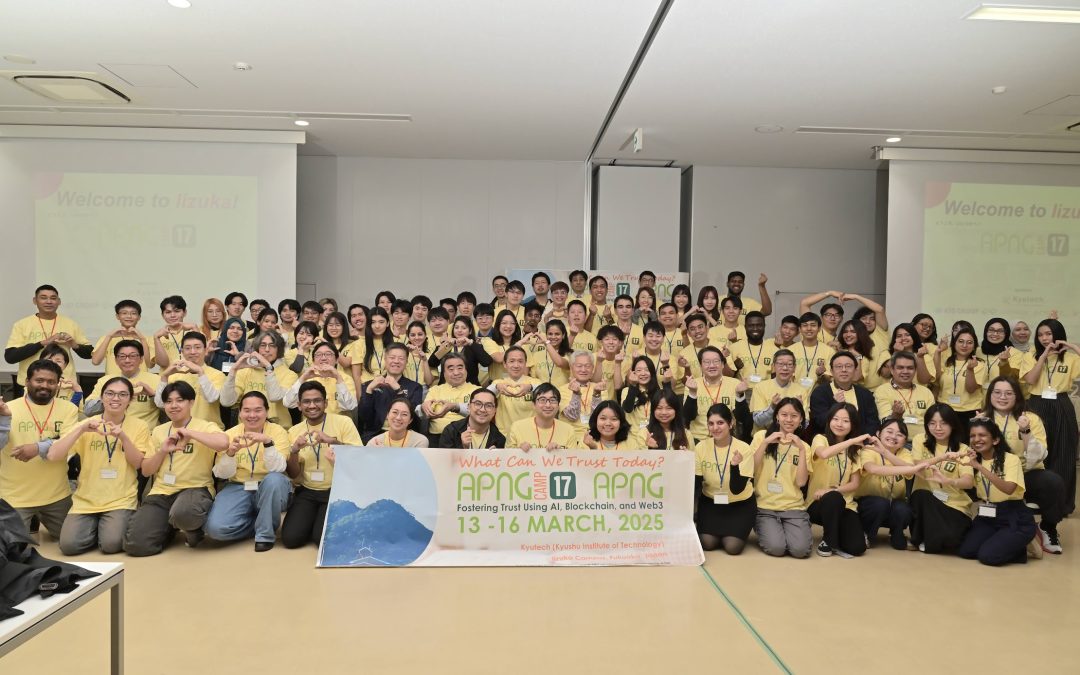
17th Asia Pacific Next Generation (APNG) Camp
The 17th APNG Camp successfully provided a collaborative space for young Internet leaders to explore critical topics related to trust in the digital age.
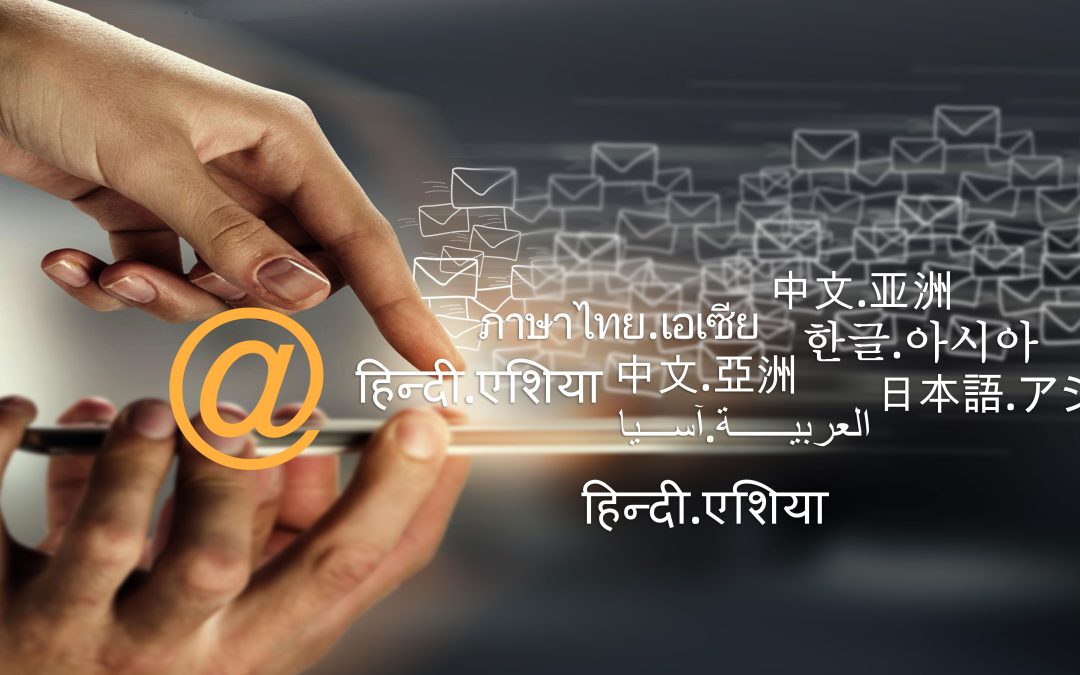
Beyond ASCII: The Vital Role of Email Address Internationalization in a Connected World
As the world becomes more connected, the need to use domain names and email addresses in local languages and scripts also continues to rise. EAI adoption has been growing in recent years, according to a Universal Acceptance Steering Group (UASG) report, as of May 2021, around 9.6% of email domains now support Email Address Internationalization (EAI), marking a noteworthy improvement from previous years. This progress indicates that EAI support is becoming more prevalent, ultimately making it simpler for individuals across the globe to utilize email addresses in their preferred languages and scripts
Continued Commitment to the Vision and Mission of DotAsia
An Open Letter and Call for Support Dear DotAsia Board and the Asia Pacific Internet Community, Thank you for the invitation for me to submit to you my ongoing commitment and vision for DotAsia to be a contributor to the regional and global Internet community as the...
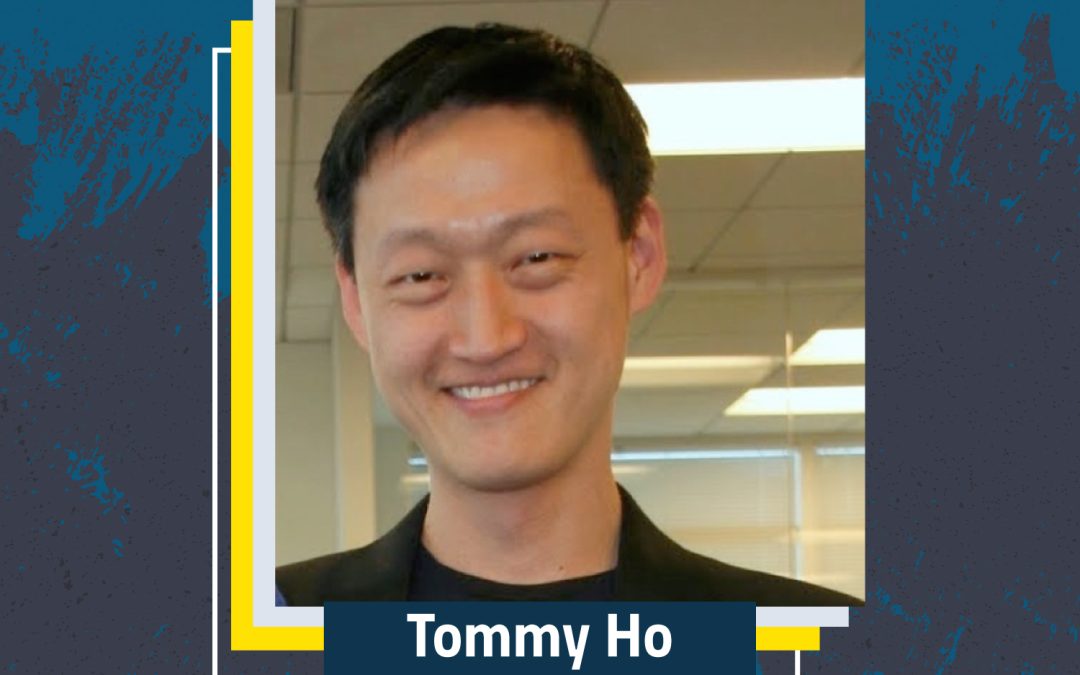
AAPI Heritage Month: Interview with Tommy Ho
Asian American heritage is about inclusion. It’s a description that cuts a wide cloth across a vast array of cultures and peoples, and it’s important to celebrate the similarities and differences. I see that diversity represented within GoDaddy’s Employee Resource Group (ERG), and GoDaddy Asians are growing. Especially during these unpredictable times, our sense of belonging that we feel through our groups help to boost mental and physical health.
